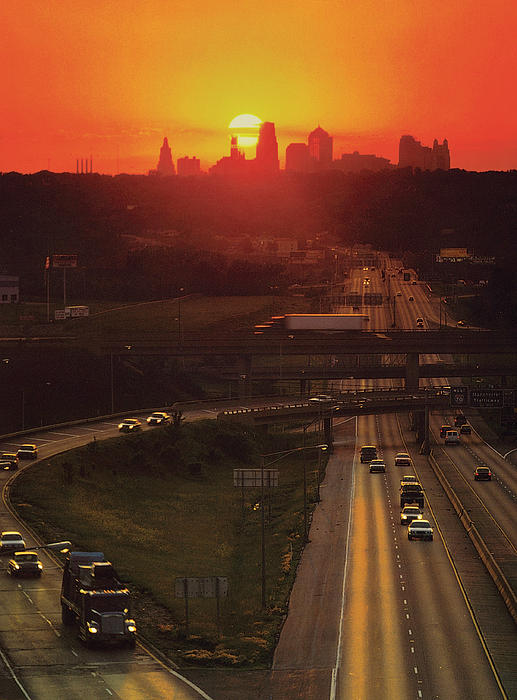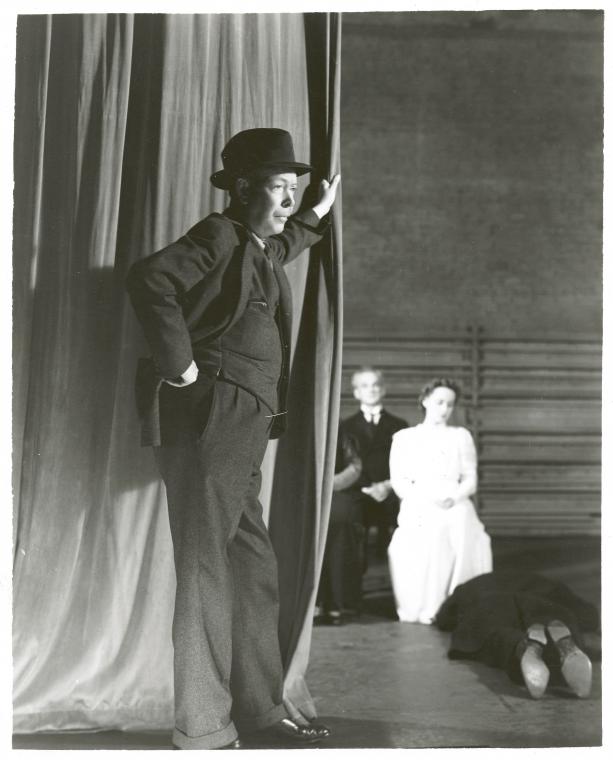 I don’t get to Kansas City too often, but whenever I do, I usually end up feeling pretty much the way I did when I went there in 2009 to see David Cromer’s production of The Glass Menagerie. On that occasion I was overwhelmed by memories of myself when young, naïve and unknowing, and it happened all over again when I returned briefly last week to give a speech.
I don’t get to Kansas City too often, but whenever I do, I usually end up feeling pretty much the way I did when I went there in 2009 to see David Cromer’s production of The Glass Menagerie. On that occasion I was overwhelmed by memories of myself when young, naïve and unknowing, and it happened all over again when I returned briefly last week to give a speech.
On the first night of my stay, I saw a woman to whom I had been close throughout the spring and summer of 1977. We met while we were playing in the string section of the Kansas City Youth Symphony, and the two of us spent part of that summer together at a music camp in Colorado. She went away to school in the fall, and in due course we lost touch, as young people are wont to do. But Facebook reunited us last year, and on Thursday I had dinner with my old friend, her exceedingly likable husband, and two of their three sons, both of whom made a very favorable impression on me. I can’t remember the last time I saw so obviously happy a family.
When I went back to Kansas City to review The Glass Menagerie, I found myself thinking of the song from Follies in which Stephen Sondheim puts these words in the mouth of one of his characters:
You take one road,
You try one door,
There isn’t time for any more.
One’s life consists of either/or.
 This time it was the last scene of Our Town that I remembered, the one in which the Stage Manager allows Emily Webb (who has just died) to spend a few minutes revisiting the past, an experience that she finds to be unendurable. What makes it so hurtful is that Emily is able to experience the past, but cannot change it: she can only speak the same words that she spoke and do the same things that she did. Not only is her past immutable, but her future, like that of Orson Welles in Touch of Evil, is “all used up.”
This time it was the last scene of Our Town that I remembered, the one in which the Stage Manager allows Emily Webb (who has just died) to spend a few minutes revisiting the past, an experience that she finds to be unendurable. What makes it so hurtful is that Emily is able to experience the past, but cannot change it: she can only speak the same words that she spoke and do the same things that she did. Not only is her past immutable, but her future, like that of Orson Welles in Touch of Evil, is “all used up.”
Unlike Emily, I still have–I hope!–a fair amount of my future before me. Not so my past, which is what it is, a string of choices whose sum is what I am today, a hard-working writer who (to paraphrase the words of a character in one of my plays) had books, not kids. Spending an evening with a friend from out of the past who chose a different path, however, reminded me as forcibly as possible of some of the other choices that I could have made. No, I wouldn’t care to change the course that my life has taken since 1977, but there’s no getting around the fact that the English language really does need a stronger word than “bittersweet” for such occasions.
The next day I went to William Jewell College, my alma mater, where I gave a lecture in Gano Chapel. This is how it started:
I grew up in a small town in southeast Missouri. Now I live in New York City. In between…I was here. When I came to William Jewell College for the first time in 1975, I was eighteen years old and had no idea of what I wanted to do with the rest of my life. By the time I left, I was a professional writer. This is the place where I became myself. In fact, this is the building where I became myself. I spent many, many hours in this auditorium, sitting where you’re sitting or standing on this stage. Not only did I play and sing in dozens of concerts at Gano, but I acted in three plays. (Not very well, mind you, but I did it!) It was here, right here, that I discovered that I wanted above all things to lead the life of art. That was thirty-eight years ago–and now I’m back.
 A few hours later I drove to Cherokee Village, the apartment complex not far from campus where I lived for a time after graduating from college. It looks the same today as it did in 1979, give or take a coat of paint. It was my first apartment–until then I’d either lived at home or in dorm rooms–and I remember with perfect clarity how proud I was of it. For a long time I spent every night and most of my days thinking about what I’d do now that I was out of school.
A few hours later I drove to Cherokee Village, the apartment complex not far from campus where I lived for a time after graduating from college. It looks the same today as it did in 1979, give or take a coat of paint. It was my first apartment–until then I’d either lived at home or in dorm rooms–and I remember with perfect clarity how proud I was of it. For a long time I spent every night and most of my days thinking about what I’d do now that I was out of school.
I wonder how I would have felt had it suddenly been made known to me (as I wrote in this space a few years ago) that I would someday look back and realize that
nothing I imagined for myself when young has come to pass: everything is different, utterly so….Nor am I the person I expected to be, calm and detached and philosophical: I still cry without warning, laugh too loud, lose my head and heart too easily, the same way I did a quarter-century ago. The person I was is the person I am, only older. Might that be wisdom of a sort?
Maybe, but I don’t feel especially wise today. Nor do I feel especially old. I just feel like the person I am, whoever he is.
* * *
John McMartin, a member of the original cast of Follies, sings “The Road You Didn’t Take” at a 1971 stage performance of the show:
